5 crucial types of keywords brands should monitor on social media

Social media monitoring entered the marketers' lives rather suddenly, becoming common practice in no time. Yet, it can be not that straightforward for the less experienced in the field. One of the frequent questions about social media monitoring is this: what keywords should you monitor? This is an important question, so let me start from the beginning.
What are keywords?
In the context of social media monitoring, keywords are the words (or the combinations of words) that you type into your monitoring tool so that the tool can find all documents that contain these words across the web and social networks. A document can be a Tweet, a Facebook/Google+ post, a name of the YouTube video, a message on the forum; a sentence on a blog, in an online article, or on a Q&A site. So, an example of a keyword can be "IBM", "Bank of Scotland", "Harry Potter and the cursed child" or almost anything else.
What keywords should you monitor?
While you can track absolutely any keywords, there are five main types of keywords that are definitely worth plugging into your social media monitoring tool:
- Brand
- Person
- Campaign
- Industry
- URL
Now let's talk in more detail about each of these types so that you could find keywords that are exactly right for your business and perhaps discover new ideas for effective social listening.
Type 1: Brand/Company
The name of your brand/company
This is an obvious place to start. You should be aware of every mention of your brand online. Whether it is a positive mention (a praise or a recommendation), a complaint, a question, or anything else, you should evaluate it in time, and react if appropriate. Remember, that everything that happens on the Internet happens really quick. Especially if it is a social media crisis. 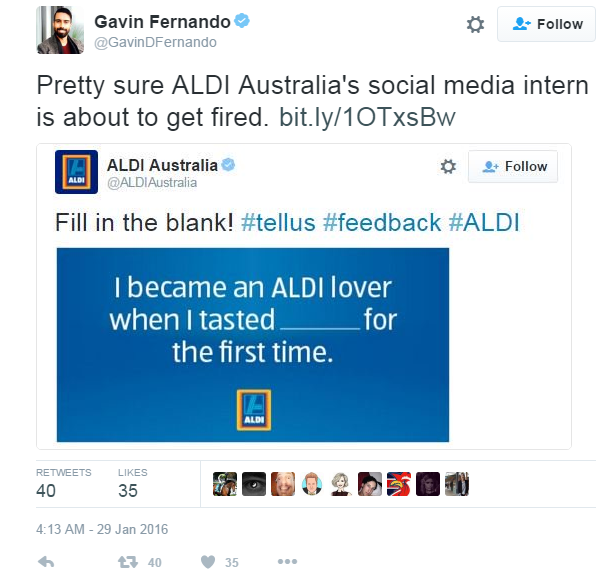
Besides, by monitoring your brand you discover who your influencers are, and observe the place of your brand online - whether it is getting more or less known, and what the buzz around your brand depends on (season, campaigns, holiday times, etc).
Any variations of your brand’s name
Excluding grammatical variations, you should include any variations of your brand's name. For example, if your brand is Coca-Cola and you are searching for the keyword Coca-Cola, you should also search for a keyword Coke. The reason is that people don't always use your brand's full name, and you don't want to miss anything important.
Potential misspellings of your brand’s name
Include the misspellings you are aware of, and keep an eye on the conversations about your brand to discover more. Then refine your keywords by including as many misspellings as possible. This is important, as your client won't forgive you for not replying to their complaint just because they've misspelt the name of your brand. 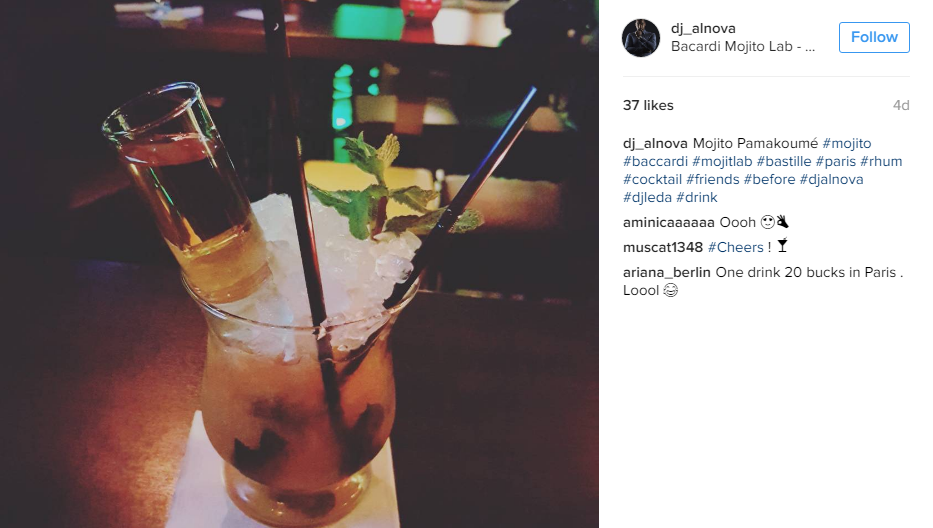
Catchphrase, slogan or tagline
If you have a particular catchphrase deeply associated with your brand, it makes sense to monitor it, too, as it maybe mentioned instead of the real brand name.
Competition
Monitor the brands of your primary (at least) competition. Monitoring competitors on social media and the Web provides you with amazing opportunities for social selling, as well as tells you how well your competitors are managing their social media marketing strategy.
Type 2: Persona
CEO
Your CEO might not be the one to participate in all industry-related Twitter chats, give interviews, or even have a Facebook page. Still it's recommended you monitor mentions of the main person in your company, as any negativity associated with their name might affect the reputation of your company. News sites don't usually check twice before writing something controversial, and any 5-minute lecture on a conference can result in a chunk of positive or negative social mentions.

The most visible members of your company
So there's a CEO, and then there is someone who is actually working on a public image of your company. Surely, they can be doing it behind the curtains, but if there's a media spokesperson in your company - do monitor them as well. You'll see what people like about their interviews, comments, presentations, and what irritates them. This can be extremely useful for your future PR strategy.
Type 3: Campaign
Specific campaign you're running
Whether you're running a Twitter campaign with a #Hashtag or showing an ad on a national TV channel, you should be watching the reaction to it on the Internet. As we know, even the most powerful advertising agencies and huge brands sometimes miss the signs of the failing campaigns, which results in serious damage. 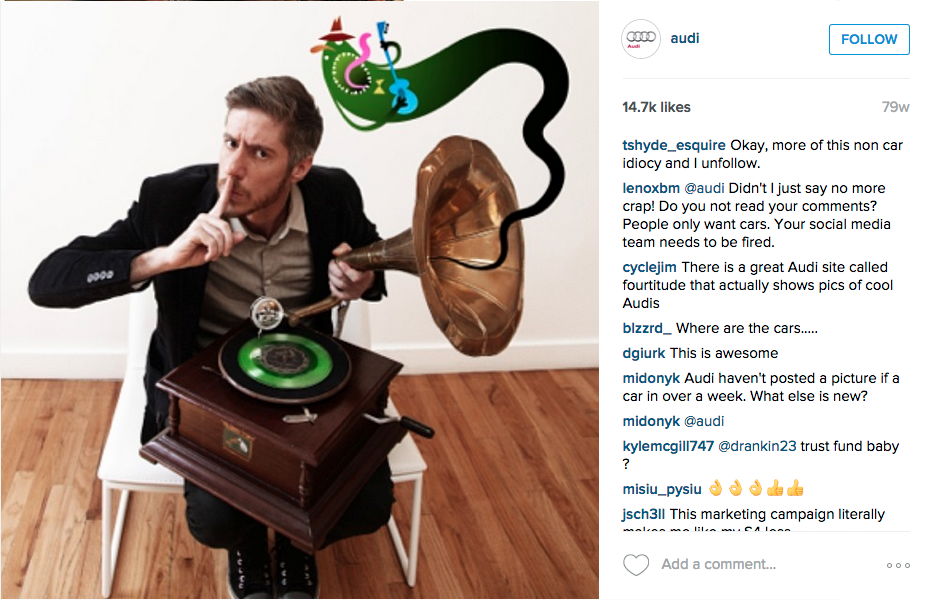
To monitor a campaign, just enter its name, its slogan and/or its hashtag as a keyword.
Type 4: Industry
Specific word combinations related to your industry
Depending on what you're selling, you can monitor your industry keywords. This is a great way to find opportunities for social selling, influencers in your industry, and opportunities for brand promotions. For example, as a marketer of a social monitoring tool Awario, I'm monitoring word combinations such as "social monitoring tool", "social listening tools", "social analytics tools". However, there is no excessive amount of social monitoring tools out there, so I don't get thousands of irrelevant mentions. This isn't the case for, for example, a marketer at a newly opened coffee shop in London. They would have to search for something much more specific - for example, a type of coffee in search for coffee lovers, or include the name of the district - in search for someone who's bored of Starbucks and asking for new places to go to.
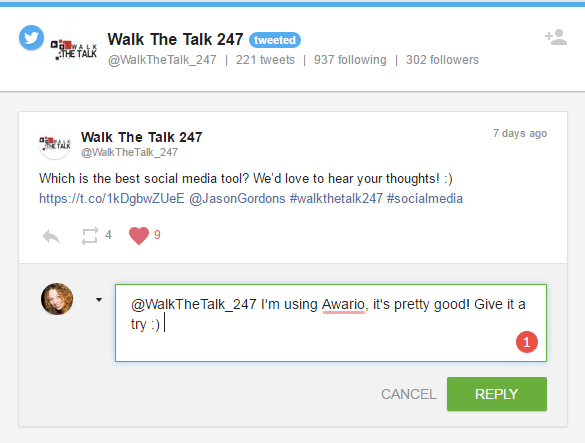
Frequent industry #hashtags
Some industries have recurring hashtags that a related brand can jump on. For example, #weddingphotographer, #familyphotographer, #photojournalism for photographers; #seo and #seoproblems for SEO professionals; #gymlife for gyms, etc. A social media monitoring tool can help find hashtags of your industry. Use them for brand exposure and promotion by simply posting your product, for example the wedding photo you made, with a hashtag #weddingphotographer and your contacts.
By signing up I agree to the Terms of Use and Privacy Policy
Type 5: URL
Brand mentions with no links on the Web
Link building is a major part of SEO. Unexpectedly, Web monitoring can help you immensely with this as well. All you have to do is monitor websites that mention your brand but don't link to it. Messaging the author of the mention and asking them to insert a link might seem like a mild headache, but it's really the simplest thing you can do to boost your search rankings.
Your competitor's URLs
Monitor your competitor's URLs to find websites that you can get links from. Chances are, if the website authors mention your competitors, accept their guest posts, or the like, they'll do the same for you.
What info are you looking for?
Hearing phrases such as "Use social media monitoring for brand promotion and lead generation" can sound clear as day for the experienced marketers, yet buzzwordy and unhelpful for the SMM beginners. So let's break down these goals as well by answering this question:
When monitoring the words we've described above, what info are you looking for?
Complaints, questions, compliments
and other opportunities for engagement and social media customer support. According to J.D. Power, 67% of consumers have used a social media channel for customer service. Moreover, they expect a fast response: research cited by Jay Baer tells us that 32% of social media users who contact a brand expect a response within 30 minutes, and 42% expect a response within 60 minutes. While compliments may not require such urgent response, it is still fruitful to let your customers know that you appreciate their attention. And if you want to go a bit further - connect with your customers and build a community of brand lovers, engagement and simple chat is a way to go. 
Target market information
There is a lot of information for market research you can gather by simply looking for things such as
- What people are saying about your brand;
- What about your product often makes people dissatisfied;
- What people love most about your product;
- How people are using your product;
- If there are people outside of your target audience that use your product.
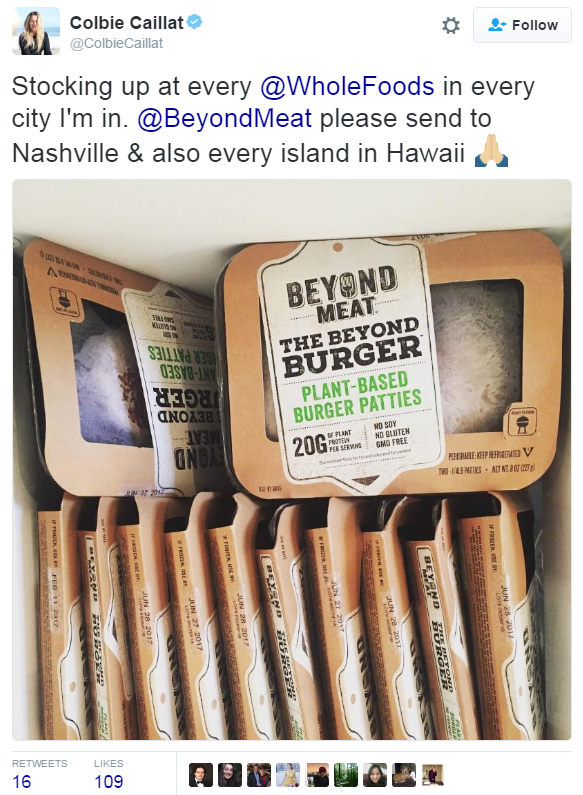
Your competitor's strategy
- Who are your competitors marketing to?
- What language, images, and techniques do they use in their marketing?
- Which of their campaigns are most successful?
- What does your target audience love and hate about your competitors?
Ideas for product improvement
- What do industry influencers and users say about how your product could be improved?
- What are thoughts for the future of your industry?
Influencers
There are two types of influencers you can uncover and find very helpful for your company. The first type are people that mention your brand quite often in either blogs, microblogs or on social media. These are also called brand advocates. Having advocates, especially with a large following, already means free advertising for your brand. You can make sure you continue getting it by forming stronger relationships with your advocates.
The second type of influencers are figures that are believed to be experts in your industry. They have a large crowd reading their blogs and/or following them on social media. The crowd trust the influencer's recommendations in the given industry, so a mention of your brand by this person may significantly increase your sales. 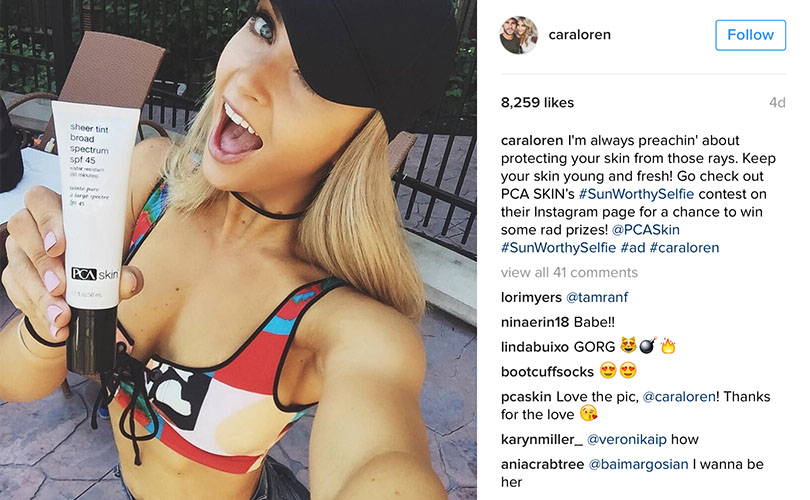
Conclusion
The extent to which you monitor what is happening online largely depends on your SMM goals. If you're aiming only for the great customer support (which will indirectly and gradually improve your sales) and wish to gain knowledge of the effectiveness of your marketing campaigns, it is enough to monitor your brand and your campaigns. If you wish to go beyond that and improve your sales by finding new clients on social media and attracting them, then get into link building, and monitoring the industry and your competitors!













